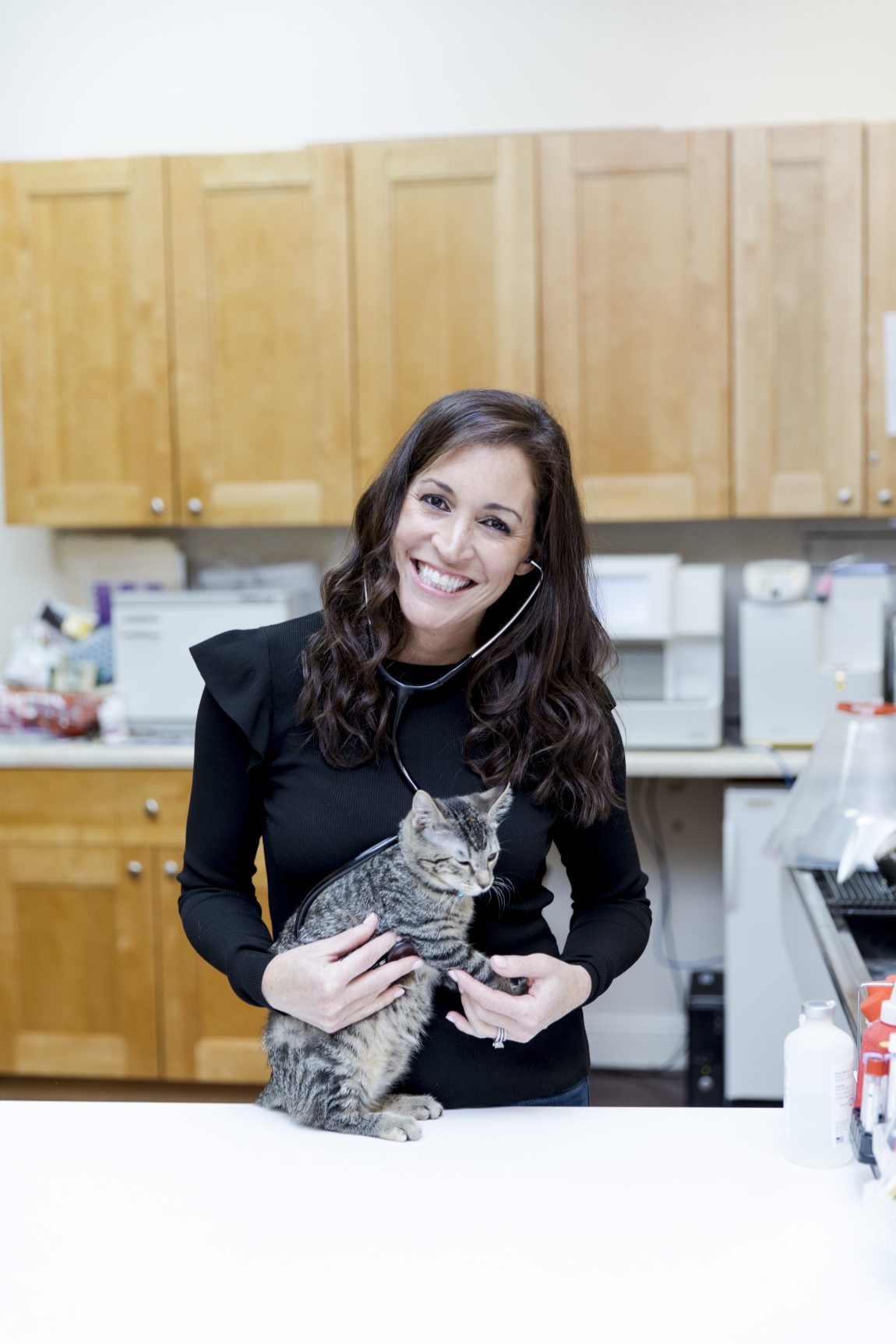
There is Blood In My Cats Urine……What Should I Do?
As a small animal veterinarian, two thirds of the patients I evaluate and treat at my animal hospital are dogs, while only one third are cats. Most of the time, when I do evaluate a cat, it is for an ailment or sickness rather than for wellness examinations. One of the most common reason for examining cats is for Feline Cystitis, otherwise known as inflammation of the bladder. The most common clinical sign pet parents see and then schedule and appointment with their veterinarian is blood in the urine and inappropriate urination. So what does this mean and how can we help are feline friends combat this very common problem? Today I would like to discuss Feline Cystitis, clinical signs to look for, how to treat, and ways to prevent this disease. Lets get stated:
What is Feline Cystitis?
Cystitis is defined as inflammation of the bladder. The 2 most commonly diagnosed forms of cystitis in cats are:
- Feline Idiopathic Cystitis– FIC is a sterile inflammatory condition affecting your cats bladder. Sterile means that the cause of the inflammation is not from an infection such as bacteria.
- Bacterial Cystitis– inflammatory condition affecting your cats bladder that is caused by a bacterial infection (urinary tract infection).
What Causes Feline Cystitis?
- Feline Idiopathic Cystitis- Unfortunately the causes of FIC are uncertain. One proposed theory is that decreased water content combined with stress factors such as urine marking, litter-box management problems, household stress, multi-cat household conflict, travel, house guests, or systemic illness, may compromise the bladder lining and set up for inflammation of the bladder.
- Bacterial Cystitis- There are many causes of a urinary tract infection. The most common causes are unknown, or idiopathic. Other causes can be from underlying bladder stones or crystals, abnormal anatomy, and rarely cancer.
What Are The Symptoms of Feline Cystitis?
- Increased frequency of urination
- Repeatedly going in and out of the litter box, while producing only a small amount of urine (*note- If attempts to void are producing no urine, it is important to consult with a veterinarian immediately- this is an emergency)
- Restlessness
- Straining to urinate
- Blood in the urine
- Excessive licking at the penis or vulva
- Urination in inappropriate places (outside of the litter box)
- Vocalizing while urinating
How Do You Diagnose Feline Cystitis?
- Feline Idiopathic Cystitis- FIC is diagnosed by ruling out all other medical disease that may be causing similar symptons such as infection, stones, or cancer of the bladder. Your veterinarian will want to perform some diagnostic tests such as:
- Urinalysis
- Urine culture
- Abdominal ultrasound or radiographs
- Bacterial Cystitis- A urinary tract infection is diagnosed based upon a urinalysis test and seeing bacteria and white blood cells in the urine.
How Do You Treat Feline Cystitis?
- Feline Idiopathic Cystitis-
- The symptoms generally resolve spontaneously within 5 to 7 days
- Addressing environmental stressors
- Prescription urinary diet- Your veterinarian may recommend a diet that alters the urine pH. and contains antioxidants and supplemental, omega-3 fatty acids
- Supplemental fluids added to the diet to create more dilute urine. This can be accomplished by feeding can rather than dry food, adding liquids (water, broth, tuna water) to the food, and feeding multiple meals per day. I recommend can wet food for all my cat patients that are diagnosed with feline idiopathic cystitis. I love and trust Wellness CORE cat food. Wellness CORE is a balanced diet that is grain free, contains all the highest quality ingredients, added supplements (omega 3 fatty acids, and glucosamine), and higher protein for lean body mass and muscle tone. Wellness CORE has many options of flavors of can cat food that they love.
- Analgesics (pain relief) medication
- Anti-inflammatory medication
- Anti-depressants
- Pheromones— Feline pheromones may reduce stress. These are available as sprays and diffusers.
- Environmental modification— Changes that enrich the environment and reduce psychological stress for the affected kitty may provide benefit.
- Bacterial Cystitis- Generally a 1 to 2 week course of antibiotics will treat a urinary tract infection.
Blood in the urine and inappropriate elimination with cats is an extremely frustrating problem and multifactorial, making it even more challenging to treat. Unfortunately, it is the number one reason why people euthanize or relinquish their pets to the shelter. There are many things that can be done and it is imperative to have your cat evaluated and diagnosed by your veterinarian. With some hard work, dedication, and consistency, I see great responses to treatment. Please speak with your veterinarian and see if you can come up with a plan for your cat. I hope this article was helpful.




